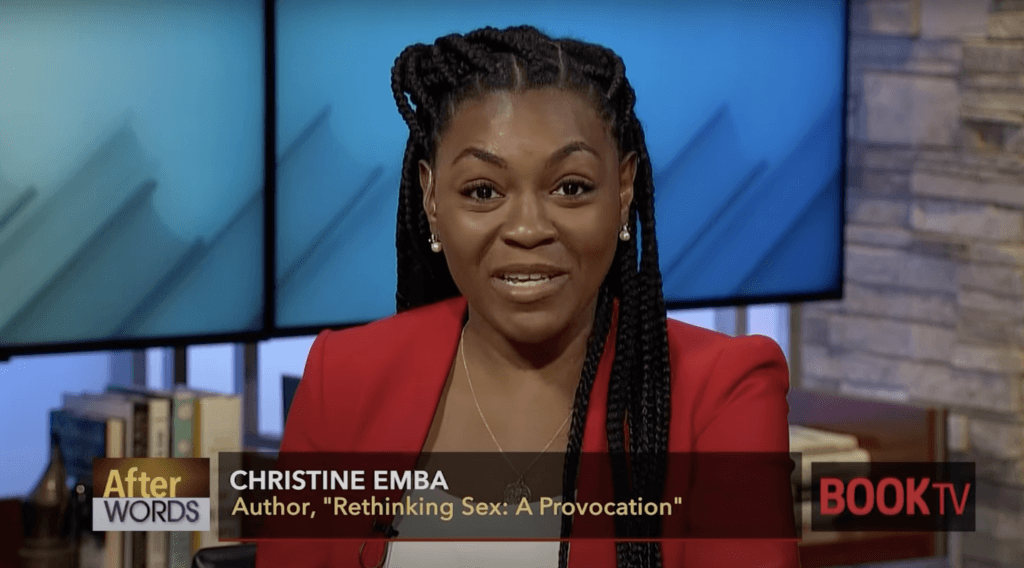 [1]
[1]NASHVILLE (BP) – Merely “consensual” sexual relations can be harmful, a young Washington Post columnist writes in a new book, “Rethinking Sex.”
Today’s seemingly liberated culture doesn’t weigh whether consensual sex is “ethically good, morally good, good for the person having it, good for the encounter and what it creates in society at large,” Christine Emba said on C-SPAN’s author interview series “After Words” in June.

Christians, however, must not succumb to cultural pressure for consensual sex, Florida pastor Dean Inserra exhorts.
“God’s design in the Scriptures for human sexuality is as clear and plain as any other important doctrine,” Inserra, author of a new book, “Pure: Why the Bible’s Plan for Sexuality Isn’t Outdated, Irrelevant, or Oppressive [2],” noted.
“What God says about marriage and sex is as clear as Jesus walking on water,” he said on the Digital Public Square podcast of the Southern Baptist Ethics & Religious Liberty Commission.
Emba, describing the cultural pressure, said many young adults “feel that to be seen as modern, to be seen as ‘sex positive,’ they have to be up for it all the time (and) that to complain or to raise qualms about a certain act or encounter would mean they’re judgmental or repressive or old-fashioned in some way.”
Emba said she is telling readers, “It’s not crazy to want something better than the sexual culture that we have now.”

Sex may be consensual – within the legal bounds of “yes means yes and no means no” – yet it can still be “bad, degrading, traumatizing,” Emba said. Many young adults she interviewed “were having sex that they were supposed to enjoy, but weren’t. … There can be a lot of pain and hurt hidden there and big questions that end up swept under the rug.” Today’s hook-up culture doesn’t have “a language” for “talking about what is good or what is bad.”
Interviewees often “talked about intimacy, transcendence, the desire for care, even love” in their sexual routines, Emba said, “but they felt almost sheepish saying that they wanted it to mean something because they felt so much cultural pressure to say that it meant nothing,” that they were just “collecting experiences.”
“In the modern era, (we) have pushed the idea of morality, or at least a shared morality, out of the public square,” she added. “You can talk about whether things are legal, whether they’re consenting, whether something was actually criminal, but to go deeper and ask, ‘What does this say about us? What are our moral standards and frameworks? What should they be?’ – that’s seen as something private and personal, something you can hold for yourself, but you can’t put on another person.”
Emba, a Catholic, said she envisions “a better standard for sex, a better sexual ethic” – the Golden Rule, “that you think about the other person’s good as much as you would think about your own. You weigh care for them as highly as you weigh care for yourself. … We all have a sense of what human flourishing might look like. And we all want that for ourselves.”
For Inserra, lead pastor of CityChurch in Tallahassee, sexual relations and marriage carry a greater importance that extends to the heart of the Gospel.
In Scripture, “it’s as clear as can be that God has made marriage to be between a man and a woman, a husband and a wife. They were to come together to become one flesh,” Inserra said in the June ERLC podcast. “God has a design and to step out of that design sexually in any way, shape or form is sin.”
The creation narrative of Adam and Eve is “echoed throughout the storyline of the Bible,” he continued. “When Jesus is asked about marriage in Matthew 19, he references Genesis as an historic event, Adam and Eve as real people, as God’s design.”
When the apostle Paul addresses the Corinthian church about their sexual sin (1 Corinthians 6), Inserra noted that Paul likewise cites Genesis in teaching that God made male and female to become one flesh in marriage.
Then, in Ephesians 5, Paul cites marriage “to show us the relationship between Christ and the church … that the visible portrait of a man and a woman together as married – that one flesh-ness – gives us an understanding of the invisible reality of the relationship between Christ and the church,” Inserra said. “The institution of marriage actually points us to our union with Christ.
“For us to back down on that, to be quiet on that, to give disclaimers, to be apologetic is for us to take lightly what God has said and let the culture, and how we’re viewed by people, determine the narrative rather than the Scriptures.”
Young Christians are dealing with “a new reality that sex is expected,” Inserra acknowledged. “What used to be the first kiss is now sleeping together. To agree to go on a date with someone is to agree to sleep with them, if not the first date, the second date.
“That’s why I encourage Christians to date other Christians. It’s not only biblical, but it’s critical right now for people to have the same ethic as you do concerning God’s design. … Please don’t even tempt with dating someone who’s not a believer. I’m not saying that two Christians are exempt from these temptations, but hopefully at least the expectation is not there.”
Sexuality, hookup culture, adultery, homosexuality, pornography cannot be “taboo topics” in the church, Inserra said, noting “there’s a way to be appropriate with it in terms of mixed company” or with a young audience. “But we have to make sure we talk about this” because Christians “can’t be in the murky middle when it comes to sexuality issues” as they reflect “the way of Jesus of truth and grace” to those who view them as bigots and sexual prudes.
“You’re going to get put on the spot about what you believe about certain things,” Inserra said, voicing admiration for those who “stand strong in terms of sexuality and purity, of valuing marriage in a world that really doesn’t (value it) very much anymore. … Christian college students with real conviction and young adults with real conviction (are) trying to do it the right way because they love God and they love others.”
